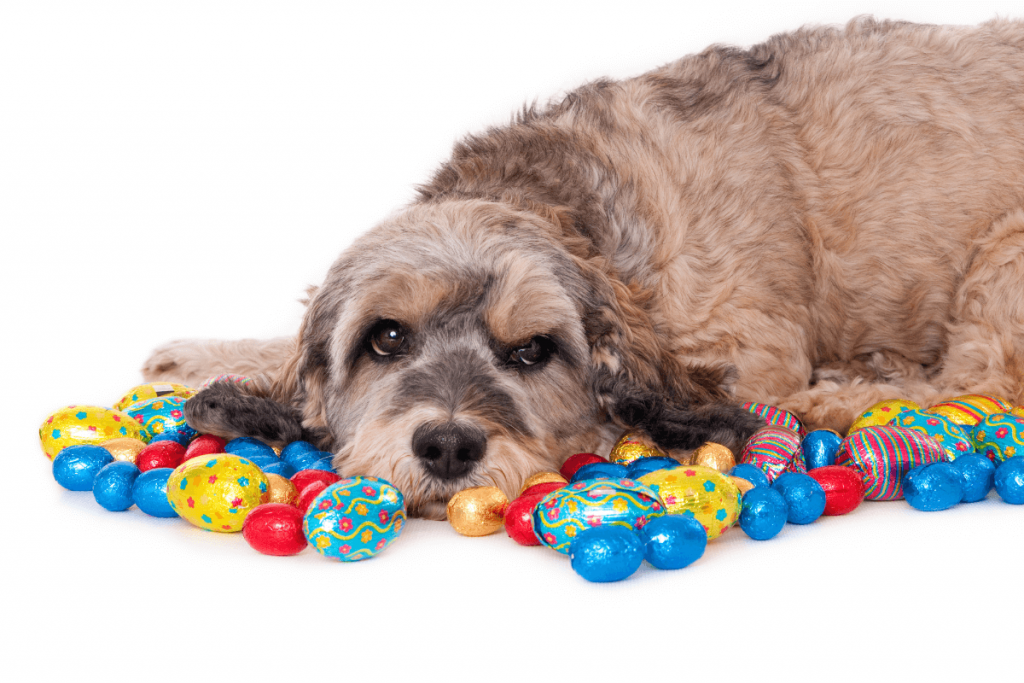As Easter approaches, and we start stocking up on chocolate eggs, it’s important to be aware of the danger that chocolate poses for dogs.
Like most of us, dogs love the taste of chocolate and have a canny ability to sniff out Easter chocolate even if you have it stashed away.
However, chocolate contains theobromine and caffeine; two compounds that are harmless to humans but potentially lethal to dogs. The level of toxicity varies with the type of chocolate, your dog’s weight, and the amount consumed.
While all chocolate is considered toxic for dogs, different types of chocolate contain varying levels of theobromine.
| Type of Chocolate | Theobromine Content | Level of Toxicity |
| White Chocolate | 0.1 mg/g | Minimal |
| Milk Chocolate | 2.5 mg/g | Moderate |
| Dark Chocolate | 16 mg/g | High |
| Baking Chocolate | 26 mg/g | Severe |
Recognising the signs of chocolate toxicity
Often you won’t even be aware that your dog has managed to snaffle some Easter chocolate, so it’s important to know the symptoms of chocolate toxicity.
These include:
- Vomiting
- Restlessness
- Excessive thirst
- Diarrhoea
- Rapid breathing
- Irregular heartbeat
- Muscle spasms or seizures
Intervention and treatment
If you suspect your pet has ingested chocolate, time is of the essence. Even if they are not showing any signs of chocolate poisoning, you should still seek veterinary advice, as symptoms can take several hours to appear.
Veterinary treatment can vary depending on the type and amount of chocolate your dog has eaten, but typically vomiting will be induced to prevent further absorption of the theobromine. Your vet may also give your dog intravenous fluids to help flush out the toxins and maintain hydration.
Keeping your dog safe this Easter
During Easter, prevention is the best approach to keep your dog safe and well.
- Store chocolate safely: Ensure all chocolate is out of reach – the fridge is a great place to keep it safe from dogs (and stop it from melting if we have warmer temperatures).
- Educate the family: Inform everyone, especially children, about the dangers of dogs eating Easter chocolate.
- Keep celebrations pet-safe: Hold Easter egg hunts in smaller, contained areas where you can account for all eggs, ensuring none are left behind to be found by your dog.
- Buy some dog-friendly treats: If you don’t want your dog to miss out on some Easter indulgence, get your pet some dog-safe treats.
If you’re ever worried that your dog has eaten chocolate, it’s important to seek veterinary advice. Our small animal vet clinic in Gawler East is open six days a week (excluding public holidays and long weekends), and you can contact us on 08 8318 1801. For emergency assistance when our clinic isn’t open, please contact the Roseworthy Veterinary Hospital on 08 8313 1999 or SASH on 08 8133 5300.



